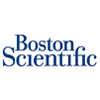
Massachusetts-based medical device titan Boston Scientific (NYSE:BSX) released early data from a study of its Lotus transcatheter aortic valve implantation system, highlighting very low rates of paravalvular leakage that analysts said could give the company some leverage in the highly charged TAVI market.
The Lotus TAVI device resulted in a 1.9% rate of moderate or severe paravalvular leakage, but the study reported a significantly higher 29% rate of pacemaker implantation. Analysts at Leerink Swann were none too worried about that balance, writing that it’s "a trade-off we expect physicians will make."
That’s good news for Boston Scientific, which could use all the leverage it can get in competing with TAVI rivals Medtronic (NYSE:MDT), with its CoreValve device, and Edwards Lifesciences (NYSE:EW), with its Sapien device.
"BSX’s Lotus valve demonstrated the lowest rate of paravalvular leak – 1.9% moderate/severe – which has a clear correlation to poor mortality outcomes," Leerink analysts Danielle Antalffy and Robert Marcus wrote in a note to investors today. "However, there was a 29.3% rate of newly implanted pacemakers associated with the Lotus valve, much higher than the 20%+ we’ve seen with Sapien XT – a trade-off we suspect many physicians will be willing to accept."
Boston Scientific has been touting the Lotus system’s potential to reduce valve leakage, which is associated with a higher rate of mortality following the procedure. In an early feasibility study unveiled last year the medtech titan touted "immediate and almost complete obliteration of aortic regurgitation even in patients who had moderately severe aortic regurgitation after balloon valvuloplasty."
Boston Scientific has some catching up to do in the TAVI arena. The analysts estimated that the Lotus system may this year win CE Mark approval in the European Union, where both CoreValve and Sapien have been on the market since 2007. They added that U.S. clinical trials may begin next year, when Medtronic expects to win FDA approval and begin competing with Edwards’ Sapien in the U.S.
"Based on the data we saw today, we expect BSX will be able to gain CE Mark approval in the E.U. in 2H13 and compete primarily against EW and MDT — who currently split the market," the analysts wrote. "However, it is still several years behind the competition in the U.S., where we don’t expect it to begin clinical trials until next year."
BSX shares were down 0.4% to $9.19 as of about 1:40 p.m. today.

